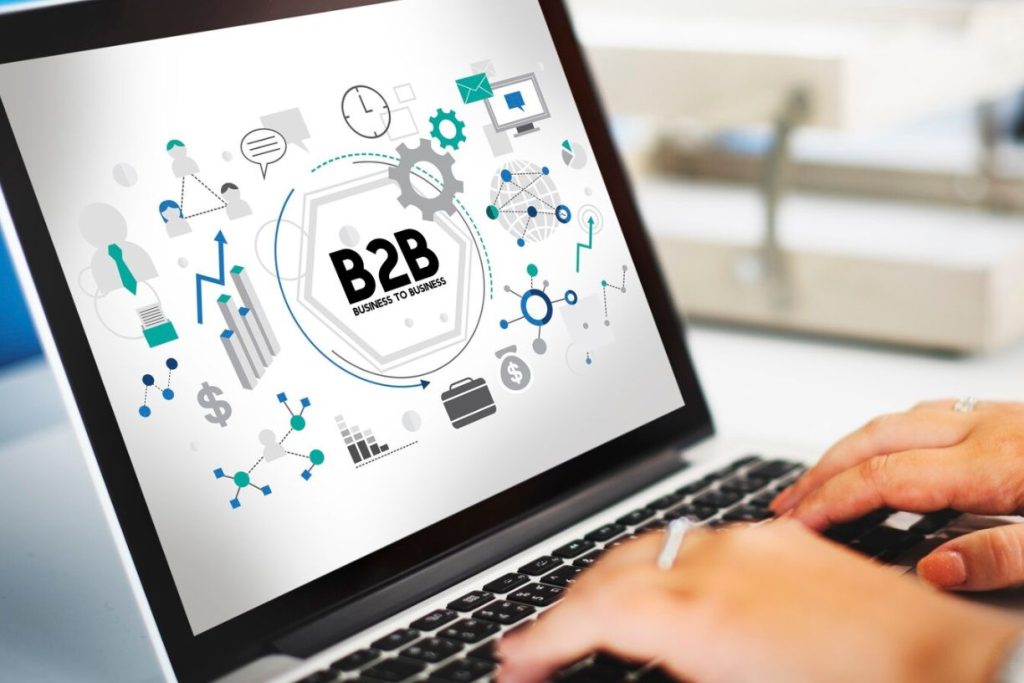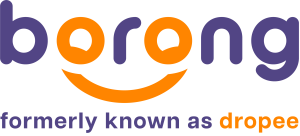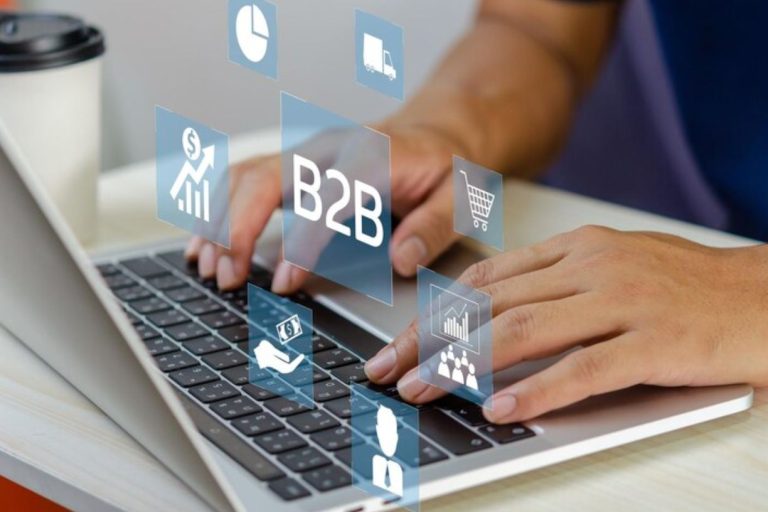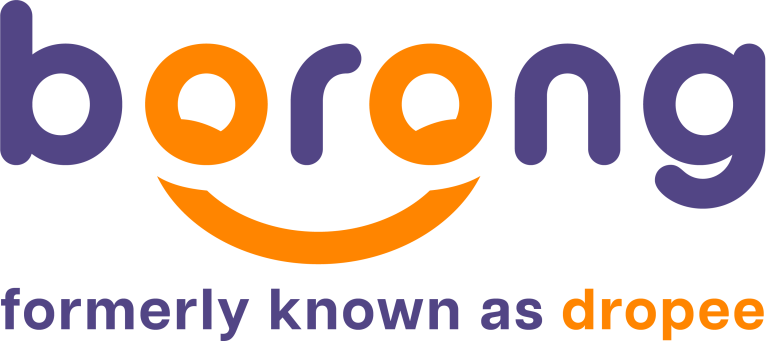In today’s fast-paced digital era, business transformation is not a choice—it’s a necessity. Companies are increasingly required to adapt not only in their operations but also in how they conduct transactions. One innovation that has gained significant attention in recent years is the marketplace B2B model.
A marketplace B2B platform offers businesses a practical, efficient, and secure way to conduct transactions. As companies search for better ways to source products, connect with suppliers, and serve customers, the B2B marketplace has emerged as a powerful solution for streamlining business processes.
What Is a Marketplace B2B Platform and How Does It Work?

A B2B marketplace is an online platform specifically designed to connect buyers and sellers in a business-to-business context. Unlike B2C (Business-to-Consumer) marketplaces that cater to individual consumers, marketplace B2B platforms facilitate transactions between businesses, often involving larger volumes and more complex processes.
The working mechanism is relatively straightforward yet highly structured. Sellers list their products or services on the platform, complete with detailed descriptions, pricing, and purchase terms. Buyers—usually other businesses—can search for products, compare offers, negotiate prices, and place orders. Many B2B platforms also offer features such as quotation requests, logistics integration, and secure payment gateways.
Also read: GMV Meaning: Definition, Calculation, and Business Insights
Leading Examples of B2B Marketplace Platforms
Globally, there are several well-known marketplace B2B platforms that have transformed the way businesses operate:
- Alibaba: The largest B2B platform in the world, based in China.
- Indotrading: A local Indonesian marketplace B2B that serves industrial and commercial sectors.
- Made-in-China: A popular alternative for sourcing Chinese products.
- Amazon Business: The B2B counterpart of Amazon, focused on enterprise procurement.
These platforms provide a glimpse into the potential of the B2B digital ecosystem and serve as benchmarks for businesses seeking to modernise their supply chains.
B2B vs. B2C Marketplace: What’s the Difference?
Not all online marketplaces are created equal. Understanding the key differences between B2B and B2C marketplaces is crucial for business owners seeking the right platform.
1. Customer Segments: Business vs. Individual
B2B marketplaces cater to inter-company transactions, while B2C platforms target individual consumers. This leads to vastly different approaches in marketing, product offerings, and customer service strategies.
2. Transaction Types and Purchase Volumes
Purchases in marketplace B2B platforms typically involve large volumes, such as raw materials, machinery, or wholesale goods. In contrast, B2C marketplaces focus on retail quantities, often single-unit purchases.
3. Longer Purchase Cycles in B2B
B2B transactions are generally more complex and time-consuming due to budget approvals, contract negotiations, and multi-layered decision-making. Meanwhile, B2C transactions can be completed within minutes.
4. Pricing Models and Negotiation
Pricing in B2B marketplaces is often negotiable, depending on factors such as volume, contract duration, and payment terms. On the other hand, B2C platforms usually have fixed pricing without negotiation.
Also read: 5 Tips to Improve Your Food Delivery Menu
Key Benefits of Joining a Marketplace B2B Platform

For businesses in Malaysia looking to streamline operations and expand their reach, here are several compelling reasons to consider joining a marketplace B2B:
1. Streamlined Supply Chain Management
By simplifying the sourcing and procurement process, B2B marketplaces enhance efficiency across the supply chain, allowing for better planning and reduced lead times.
2. Access to Global Suppliers and Customers
Thanks to digital connectivity, Malaysian businesses can connect with suppliers and buyers worldwide without needing physical branches or offices.
3. Transparent Pricing and Business Terms
B2B platforms allow buyers to compare offers, evaluate supplier credibility, and make informed decisions based on clear pricing and purchasing conditions.
4. Scalable and Automated Procurement Processes
Integration with enterprise systems like ERP and e-procurement tools enables businesses to automate routine purchases and scale their operations without increasing administrative workload.
Common Challenges in B2B Marketplace Adoption
Despite the numerous advantages, there are also challenges associated with operating on a marketplace B2B platform. Business owners must be aware of these to make the most of their digital transformation.
1. Transaction Complexity
B2B transactions are often not as simple as a few clicks. They may require document verification, pricing negotiations, and formal contracts that can take time to finalise.
2. Data Security and Business Trust
Given the high transaction values, security is paramount. Robust verification systems are essential to protect sensitive data and ensure trust between trading partners.
3. Technological Adaptation
Traditional businesses may struggle to adopt digital platforms due to a lack of IT resources or limited digital literacy among employees.
4. Platform Fees and Commissions
Some marketplaces charge subscription fees, transaction commissions, or other costs that can impact profit margins—particularly for small to medium-sized enterprises (SMEs).
Also read: Repeat Customers: How to Attract and Retain Regulars
Winning Strategies for Selling on a Marketplace B2B Platform
Success on a marketplace B2B platform requires more than just uploading products and waiting for orders. Here are proven strategies to help your business thrive in the B2B digital space:
1. Choose the Right Platform
Not all B2B marketplaces are the same. Select one that aligns with your product category, target market, and business size. Evaluate features such as logistics support, payment protection, and customer service availability.
2. Build Trust and Professional Reputation
Positive reviews, high ratings, and responsive service play a key role in establishing long-term credibility. Focus on delivering consistent quality and nurturing repeat buyers.
3. Optimise Product Listings and Descriptions
Clear, accurate, and informative product descriptions are essential. Include technical specifications, product benefits, and relevant keywords to increase visibility on the platform.
4. Implement Smart Pricing and Promotions
Offer competitive pricing and create special deals for bulk purchases. Consider offering loyalty discounts or promotional bundles to attract repeat business.
The Future of Marketplace B2B: Where Are We Headed?
What began as an alternative channel has quickly become a core procurement method for businesses worldwide. The future of marketplace B2B is bright, especially for digitally agile companies in Malaysia.
1. Accelerating Digital Trends
As more companies migrate their procurement to online platforms, the marketplace B2B model will evolve with enhanced features, improved user experiences, and tighter integration with enterprise systems.
2. Role of AI and Big Data
Artificial Intelligence (AI) and Big Data will play an increasing role in helping businesses analyse customer behaviour, forecast demand, and personalise the buying experience.
3. Integration with E-Procurement and ERP Systems
Future B2B marketplaces will be deeply embedded into business infrastructure, seamlessly connecting with ERP, CRM, and accounting systems for full procurement automation.
Final Thoughts: Embrace the Marketplace B2B Revolution
In the ever-evolving digital economy, marketplace B2B platforms provide an efficient, scalable, and forward-looking way for businesses to grow and adapt. For Malaysian retailers, wholesalers, and suppliers, these platforms represent a gateway to global opportunities.
While challenges remain, the potential benefits far outweigh the risks—especially with the right strategies in place. From improving procurement to expanding your market reach, the marketplace B2B model has proven to be a game-changer.
Don’t get left behind in the digital race. Start building your B2B presence with a platform that supports your growth goals, simplifies your operations, and connects you to the world.
Register on Borong today and become part of an integrated, future-ready business ecosystem.


